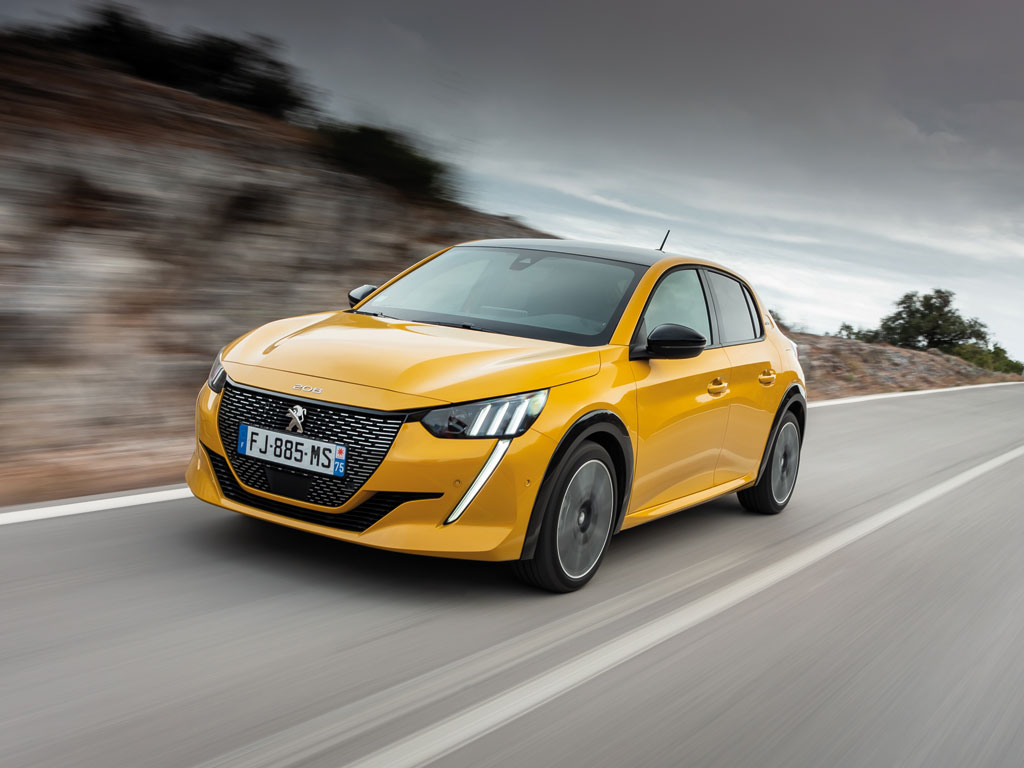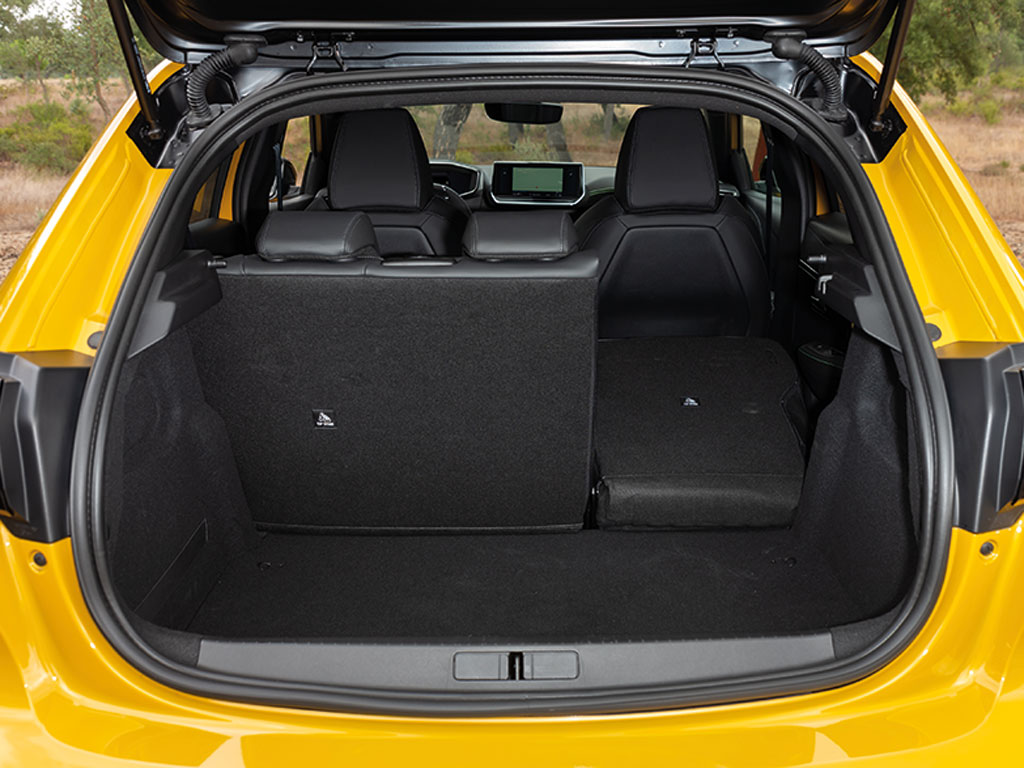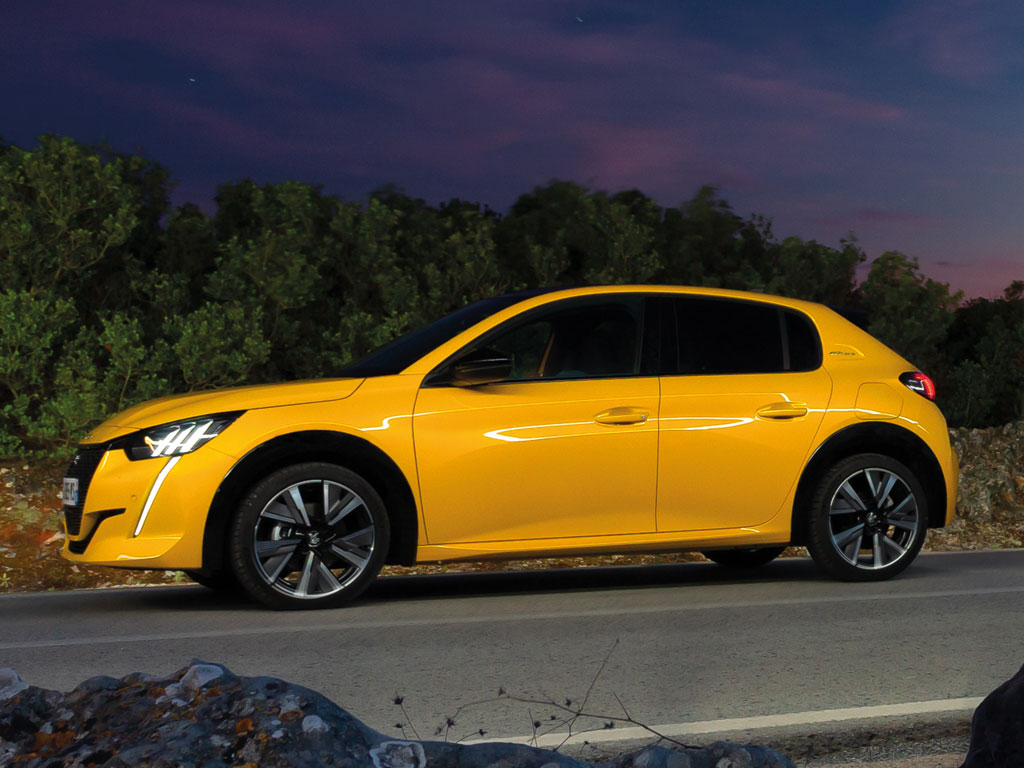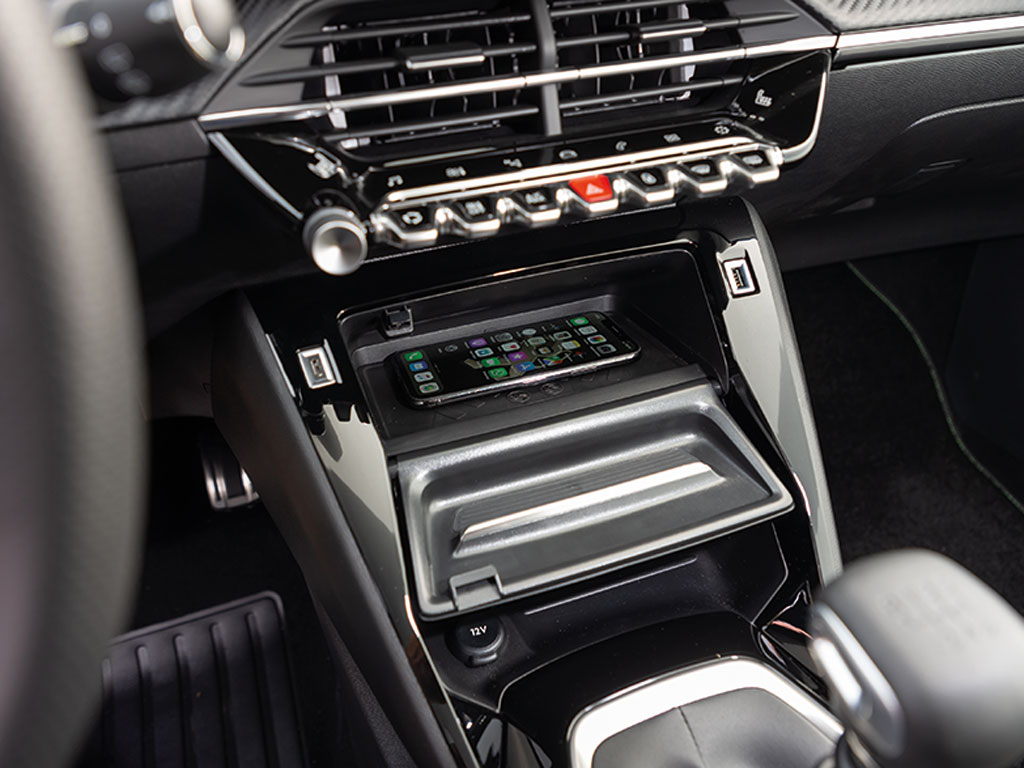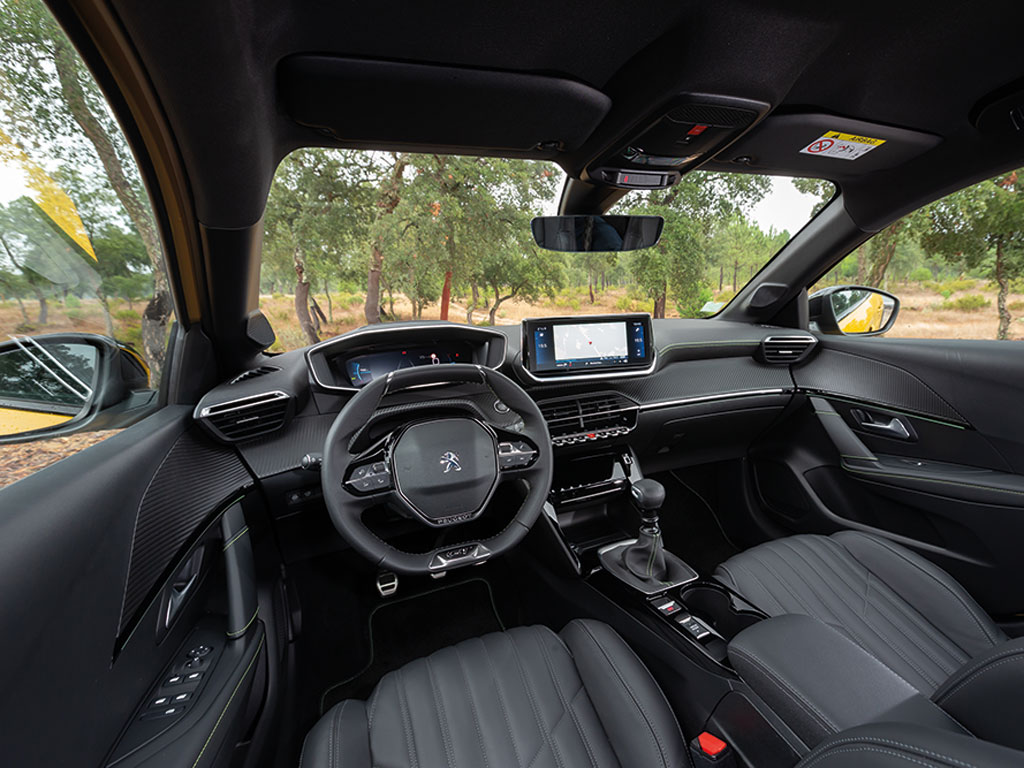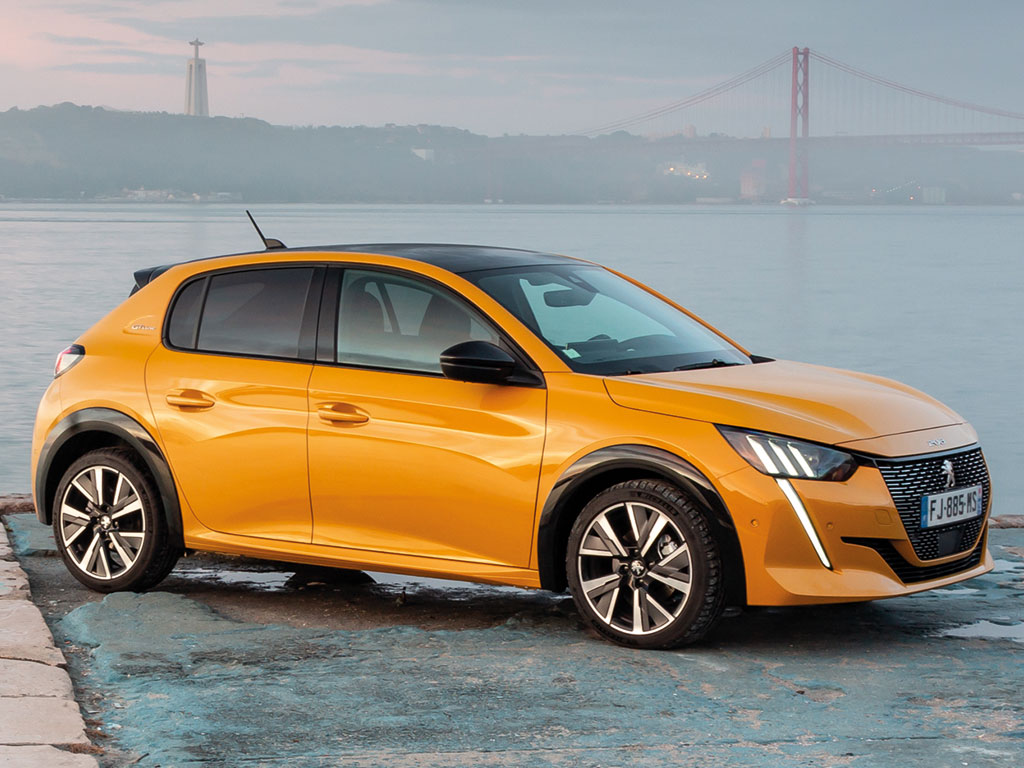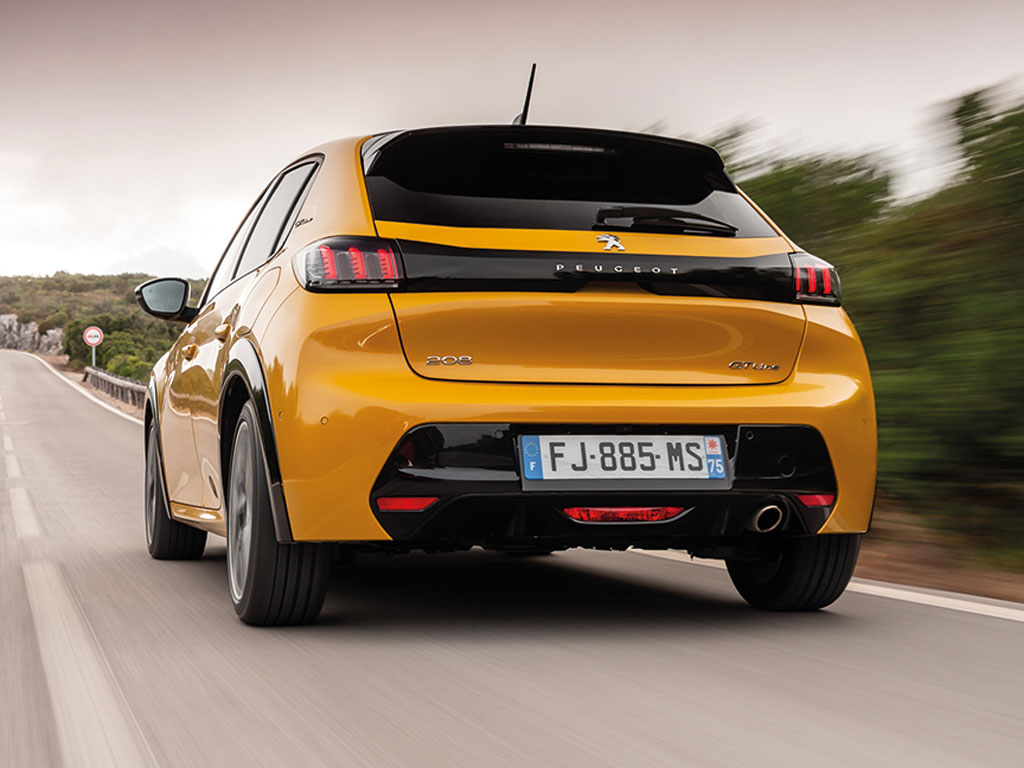Road test: Peugeot 208
Distinctive styling and the choice of full electric power could see Peugeot’s new baby shake up the supermini class, thinks Martyn Collins.
Sector Supermini Price €15,500-€37,150 Fuel 3.2-4.1l/100km (e-208: 340km range)* CO2 0-103g/km**
The new 208 is described by PSA Group’s chief executive and chairman, Carlos Tavares, as “the best of Peugeot”. If you like its current, aggressive styling direction (which we do!), you’re bound to like the look of the new 208. The most distinctive parts of the front must be the curvy bonnet and large grille (which is colour-coded on ‘e’ electric 208 models). As well as the distinctive headlights and large vertical daytime running lights that slash down the front air dam.
From the side, there are bulging arches, with the sides slimmed and given definition by some clever surfacing. The thick rear roof pillars also evoke memories of the iconic 205. From the back, there are smoked, high-set rear light clusters with gloss black trim in-between to join them up. The low rear bumper is fitted with a diffuser and twin exhausts depending on the version. Overall, the 208 is a great-looking car.
Inside, there’s the latest version of Peugeot’s i-Cockpit, with new and easy-to-read 3D dials on top models. Most of the controls in the high-set dashboard are operated via the central infotainment screen, however there is a neat set of metal-look shortcut buttons and carbon fibre-look trim below the screen. Elsewhere, there’s a central phone charger on top models.
We reckon taller drivers will find it a struggle to get comfortable and see the instruments in the new 208. Although this situation is made more noticeable with the more supportive sports seats fitted in GT-Line and GT models. Rear space and the 265-litre boot are average.
It’s offered in Like, Active, Allure including GT-Line Package and GT trims and all models have Bluetooth, a DAB radio, manual air-conditioning and Active Safety Brake. Other safety equipment included as standard is the Distance Alert System, Peugeot Connect SOS, with Active Blindspot Detection and Adaptive Cruise Control added from GT models upwards.
PureTech petrols are available in 75, 100 and 130hp versions. There’s also a 134hp 1.5-litre BlueHDi diesel and 136hp full-electric versions. We started with the entry-level PureTech 75, which with just 75hp is probably best suited to town work. However, what this three-cylinder lacks in performance, it makes up for in willingness and character – the five-speed is the pick of the 208 manuals too. The PureTech 100 with 100hp is probably our pick of the petrol engines, feeling more flexible. The final petrol is PureTech 130, which seems well matched to the slick EAT8, eight-speed automatic transmission that it’s only available with.
With the Blue HDi 130 diesel, power and torque build quickly, but it can prove a little noisy at speed. Along with the 75 and 100 versions of the PureTech petrol, the all-electric e-208 is another range highlight. Although the test cars we drove briefly weren’t quite finished, the e-208 felt torquey (300Nm) and quick off the mark, with the official sprint to 100km/h timed at 8.1 seconds. The 50kWh battery and 100kW electric motor equal 134hp and give an WLTP range of 340km. Another bonus is that the e-208 can be charged at up to 100kW, meaning it can go from zero to 80% capacity in just eight hours. Peugeot is predicting the e-208 could equal as much as 15% of the global volume, so it’s one to watch.
The biggest disappointment is the ride and handling balance. Peugeot is offering just two suspension options for the 208, one for lighter engine models and one for heavier ones. The ride is slightly on the firm side for all, but the best compromise lies in the smaller, lighter PureTech petrol versions. Being so stiff, you’d expect the handling to be Fiesta-rivalling, but the oddly weighted steering and tiny wheel frustrate.
The Lowdown
Key Fleet Model: PureTech 100 Allure
Strengths: Looks great, attractive interior, e-208 electric version
Weaknesses: i-Cockpit driving position won’t suit all, firm ride
The Verdict
There’s a question mark over how the 208 drives, but the all-electric e-208 is likeable and the whole range moves towards premium – which is a good thing.
Fleet World rating: 4/5

